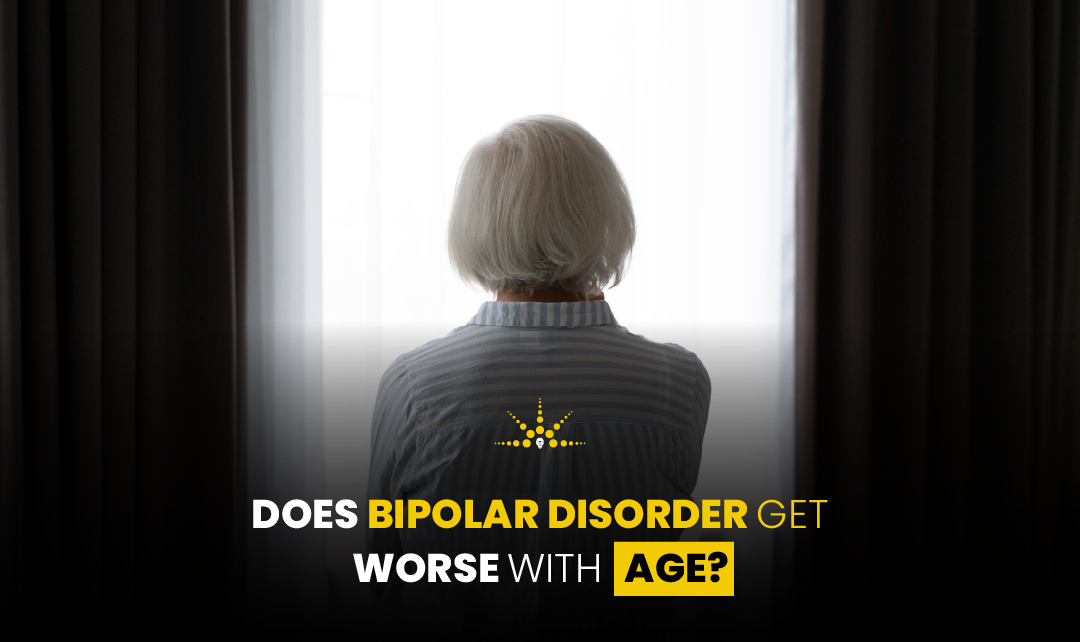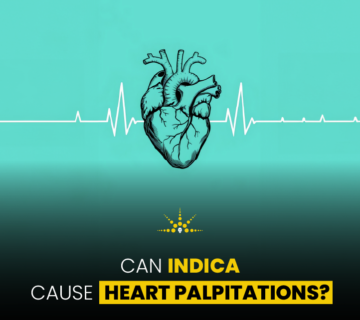Bipolar disorder refers to a mental health issue defined by noticeable shifts in mood, such as manic and depressive episodes. It can appear during any life stage, but many people notice the first signs in them after years.
As peoples get older, bipolar disorder’s effects, intensity, and overall influence can change.
At SafeStar Psychiatric, we offer ADHD services to those who need guidance and support in dealing with their situation.
We’ll look into does bipolar disorder get worse with age. The issues related to age with this condition and the therapies available for more adult people.
Bipolar Disorder in Elderly Symptoms
When BD gets worse, here’s what could happen? More mood swings might occur. Those with BD progress might flip quickly between sustained high energy and severe sadness.
- Depression Long-lasting episodes: Your periods of high energy or deep depression might last longer than before.
- Intensity upswing: As the bipolar disorder progresses, the signs during mood swings could get stronger, messing with your day-to-day life and happiness.
- More challenging to treat: It might get more difficult for those with worse bipolar disorder to control their mood swings with the usual treatments. They might need to change their care plan. Plus, problems with thinking and remembering things and higher dementia rates as they age might become noticeable.
Why Does Bipolar Disorder get Worse with Age?
Growing old could heighten some bipolar disorder aspects. Research indicates that it may speed up ageing and lead to cognitive losses. Older adults with bipolar disorder may face higher dementia risks and other mental issues. Influential factors seem to include:
- The Natural Aging Process: Aging naturally changes how we think and control emotions, and these shifts can be more noticeable in people with bipolar disorder.
- Other Health Issues: Existing health problems could make bipolar disorder harder to control and worsen its symptoms.
- Frequent Mood Changes: Numerous mood episodes over a lifetime can affect brain health, possibly causing physical brain changes.
Prevention and Management
Handling Bipolar disorder (BD) requires a well-rounded plan to manage symptoms effectively. Doctors often recommend a combination of medications, therapy, and lifestyle changes.
Let’s look at some strategies for BD management:
- Medication: Drugs play an important role in BD treatment. The list includes mood balancers like lithium and anticonvulsants. Antipsychotic drugs can manage severe symptoms, and in some cases, antidepressants help with depressive episodes.
- Psychotherapy: Treatment approaches incorporate cognitive behavioral therapy (CBT), interpersonal therapy, and social rhythm therapy. It helps people in mood stability by controlling their social and biological rhythms.
- Lifestyle Changes: Making lifestyle changes is invaluable in managing Biloper disorder. Setting regular daily schedules, ensuring enough sleep and mastering stress management skills are necessary.
- Social Support: A strong network of family and close friends is important. BD individuals might find joining support groups beneficial, connecting with others with similar experiences. This community sense can reduce feelings of being alone and offer valuable ways of handling the situation.
When to Contact a doctor?
If an individual believes their BD symptoms are worsening, reaching out to a doctor can be beneficial.
Look out for signs of intensifying symptoms. Extreme mood shifts, energy allocation transformations, impacted sleep cycles, and hindered daily activities are all red flags. It’s also important if one’s manic or depressive waves are becoming recurring.
Doctors can suggest new therapies or medicines. They can serve as guides in navigating improved mental health practices effectively.
In Conclusion
Does bipolar disorder get worse with age?
Bipolar disorder shows different signs in different age groups and can intensify for some.
Older people might experience more severe episodes and spend more time feeling down. If one sees a shift in their bipolar signs, they should talk with their doctor.
Alternate medicines or treatment plans can make handling the symptoms easier, leading to a better lifestyle and happiness.
FAQs
-
How can older adults with bipolar disorder manage their symptoms?
Yes, with a mix of medicines like mood balancers and antipsychotics, therapies like CBT and social rhythm, daily routine tweaks, and a good circle of friends for support.
-
What should someone do if they notice their bipolar disorder symptoms worsening?
A visit to the doctor is required when symptoms increase. They are good at assessing the situation, devising treatment plans, and providing more effective advice on managing the condition.
-
Is there a risk of cognitive decline in older adults with bipolar disorder?
Yes, older adults with bipolar disorder may experience cognitive decline, potentially leading to conditions like dementia. This is influenced by the disorder itself, as well as the natural ageing process.
-
Can lifestyle changes help manage bipolar disorder in older adults?
Yes, sticking to a daily routine, getting a good night’s sleep, using stress-busting techniques, and being active and eating healthy can make managing symptoms a lot easier.







No comment